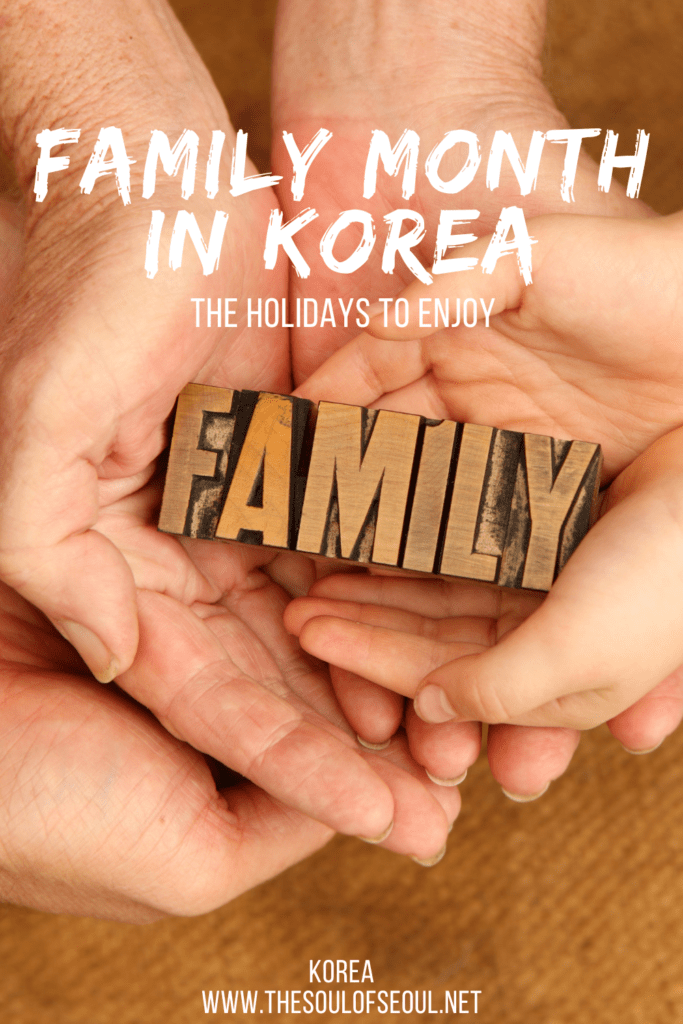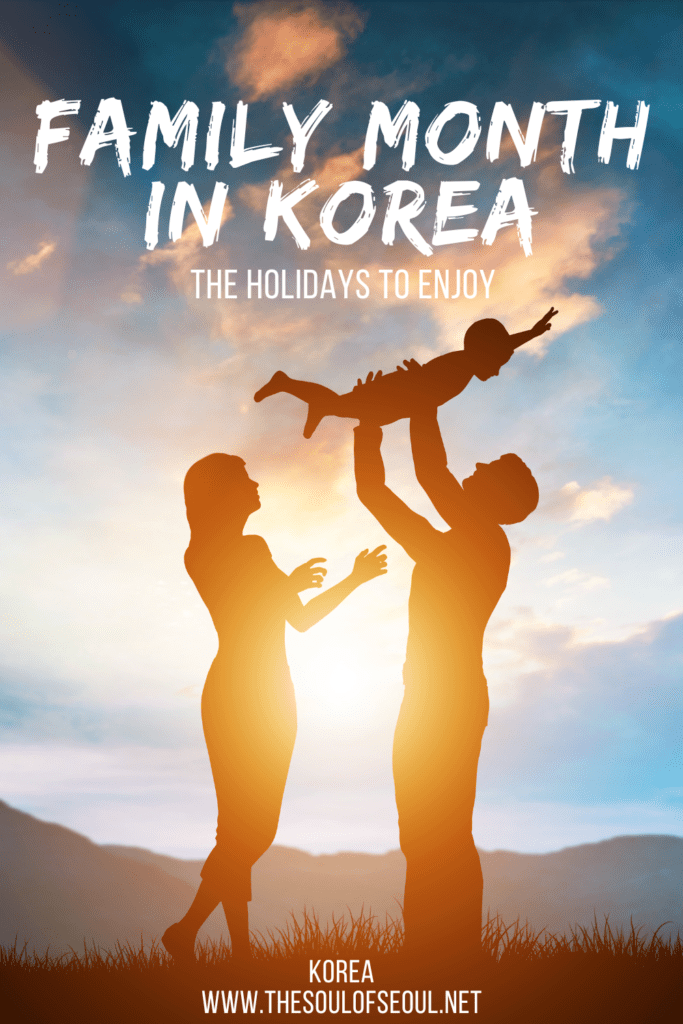Why May Is Called Family Month In Korea
Last Updated on May 9, 2024
Did you know May in South Korea is affectionately known as “Family Month”? The month of numerous family-centered holidays, May is the month to honor transitions in life and to celebrate numerous businesses including hotels, restaurants, and so on over discounts and family-friendly promotions.
The most celebrated of the holidays in May in Korea are Children’s Day, Parent’s Day, and Teacher’s Day, but there are actually more family-centered holidays during the month of May. Get ready to read all about them and celebrate, celebrate, and celebrate some more.

(This post contains affiliate links, which means I receive a certain percentage of a sale if you purchase after clicking at no cost to you. Thank you for your support.)

Children’s Day
Children’s Day in Korea, celebrated on May 5th was first established in 1923 by children’s book author Bang Jeong-Hwan. While today you’ll see children all around playing in parks and special events just for children’s enjoyment, the idea of the holiday was not only focused on the joy of childhood but also emphasized the importance of children’s rights.

Bang introduced the term “어린이” (children), setting a respectful tone towards the younger generation. This day is marked with numerous events and family outings, as parents take their children to amusement parks like Children’s Grand Park or Lotte World, celebrating in the warm spring weather.
If you’re like us though, you’ll go out the day before or after to avoid the crowds that inundate every open space available. On that note, we’ve had great Children’s Day quiet time at nearby Buddhist temples, too. Just something to think about.
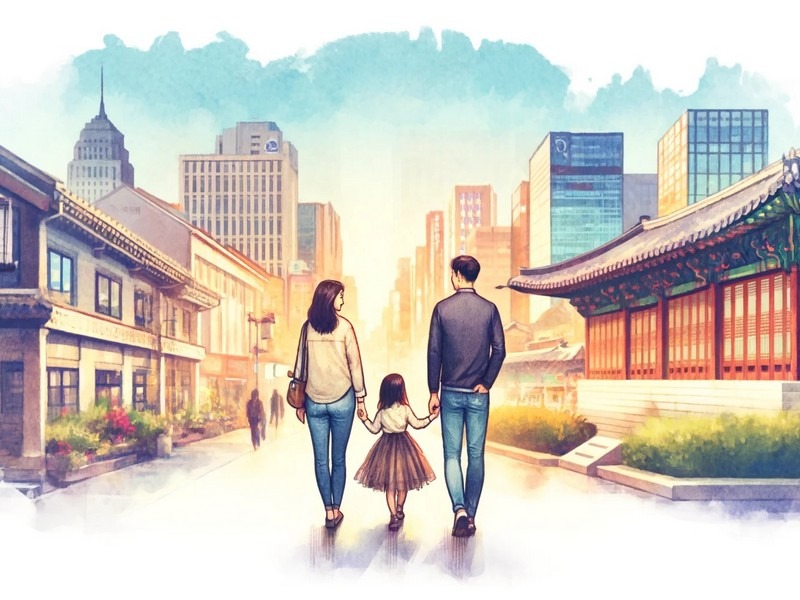
Parents’ Day
Following the joyful chaos of Children’s Day, Parents’ Day on May 8th offers a moment of gratitude and reflection. Originally celebrated as Mother’s Day since 1956 and later expanded to include fathers in 1973, this day is a poignant reminder of the sacrifices and love of parents.
Traditionally, children gift their parents carnations, a symbol of love and gratitude, though in recent years, practical gifts like money bouquets have become popular. If you have young children in Korea, they’ll likely come home with a carnation craft or flower from their daycare or school to celebrate.
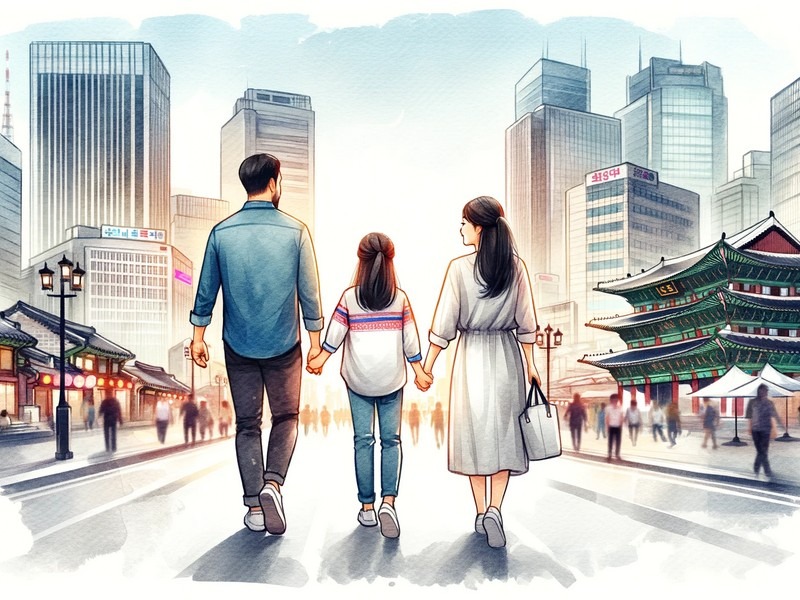
Coming-of-Age Day
The third Monday of May marks Coming-of-Age Day, celebrating young people reaching the age of 19. This day is dedicated to the youth stepping into adulthood, often marked by smaller, more intimate family gatherings and gifts that symbolize adult responsibilities and freedoms.
This isn’t often marked on promotions for Family Month in Korea, but it is a holiday that you might hear about if you have a soon-to-be highschool graduate in the family.

Married Couple’s Day
On May 21st, Married Couple’s Day offers a chance for spouses to reflect on their journey together and reaffirm their commitment, though it’s less commercialized compared to other holidays.
If you’ve been in Korea long enough, you’ll know there are numerous romantic(-ish) holidays for dating couples in Korea. Couples even get couple rings in Korea. After getting married in Korea though, the romance declines a bit, so make sure to know what to celebrate as a married couple too.
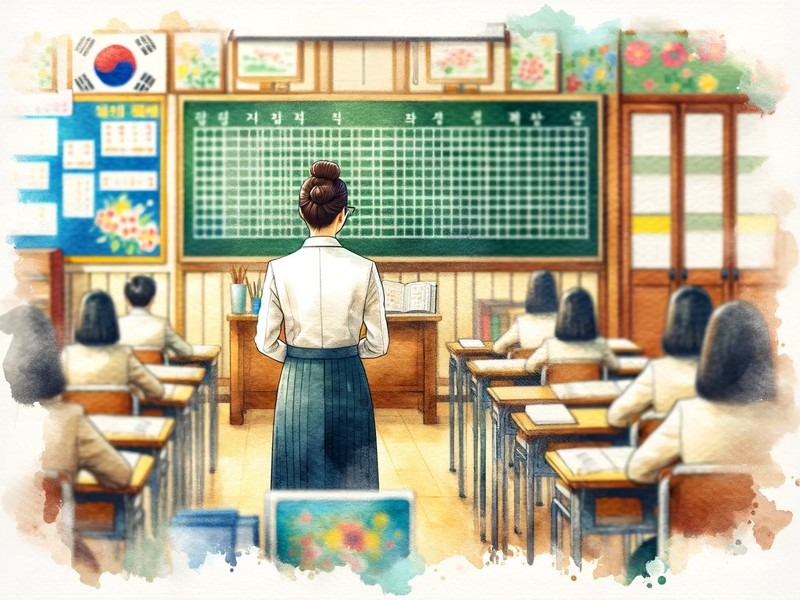
Teacher’s Day
Teacher’s Day on May 15th, another significant day, falls on the birthday of King Sejong, who is revered as a great teacher for creating Hangul, the Korean alphabet.
This day was established to honor teachers and their indispensable role in shaping minds and futures. Students often express their gratitude through simple yet meaningful gestures like letters, adhering to recent regulations that limit the value of gifts to teachers.
May in Korea isn’t just about the individual holidays; it’s promoted as a collective month of celebrating family ties, family members, and those people that support members of our families.
Did you like this post? Pin IT!
